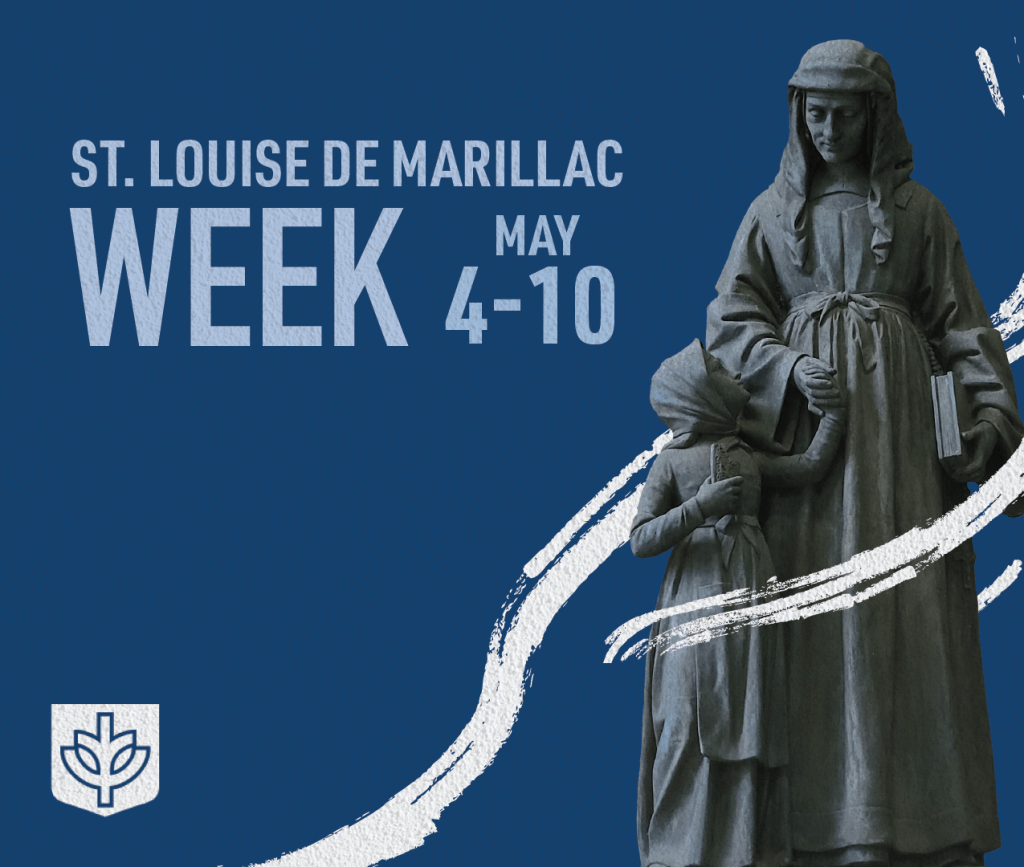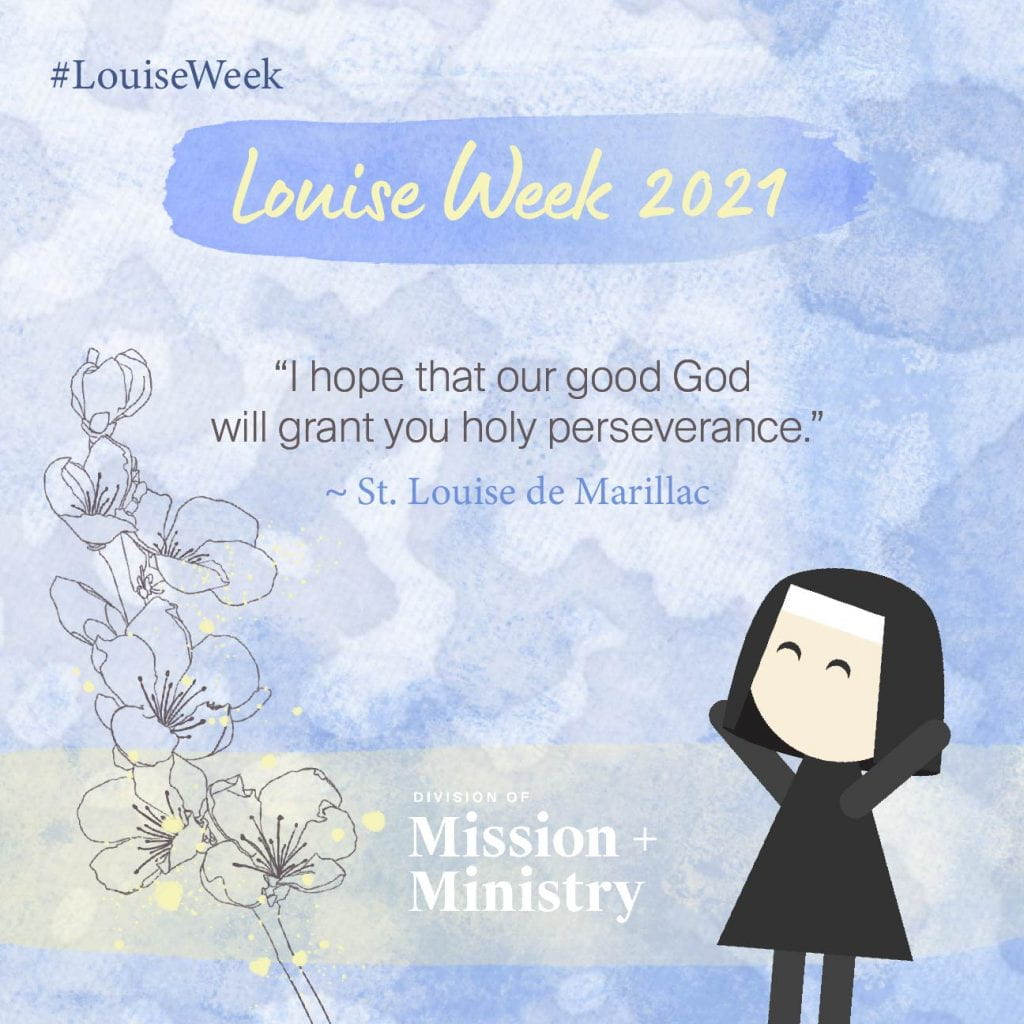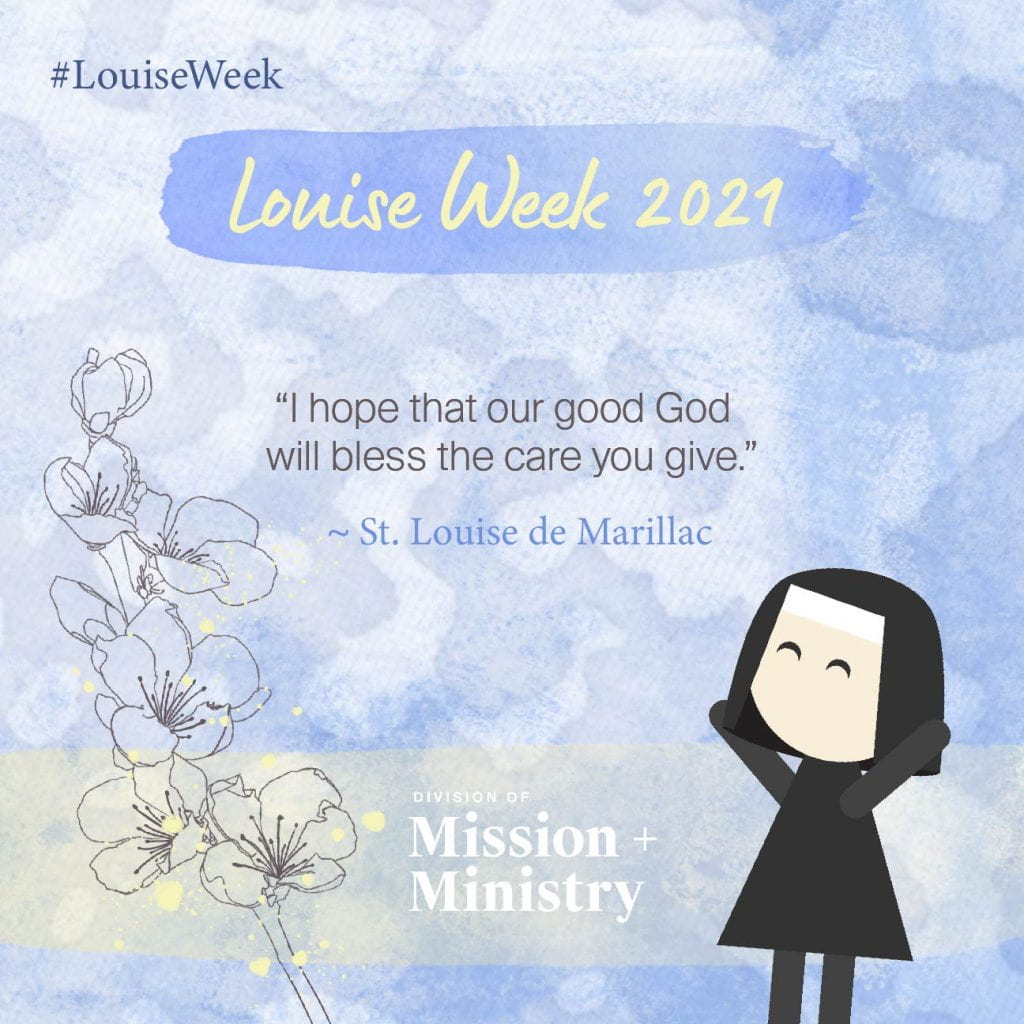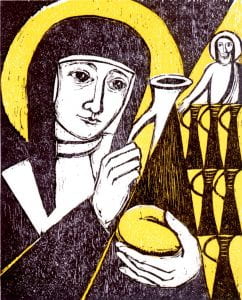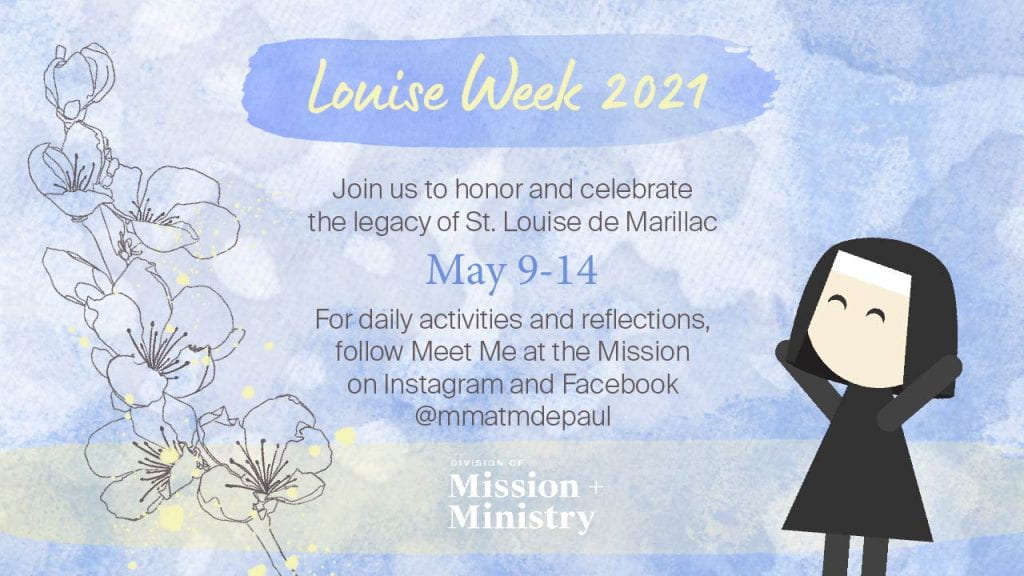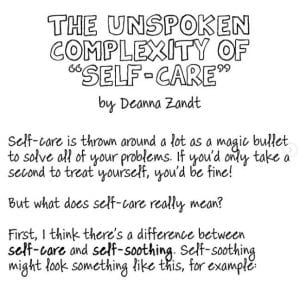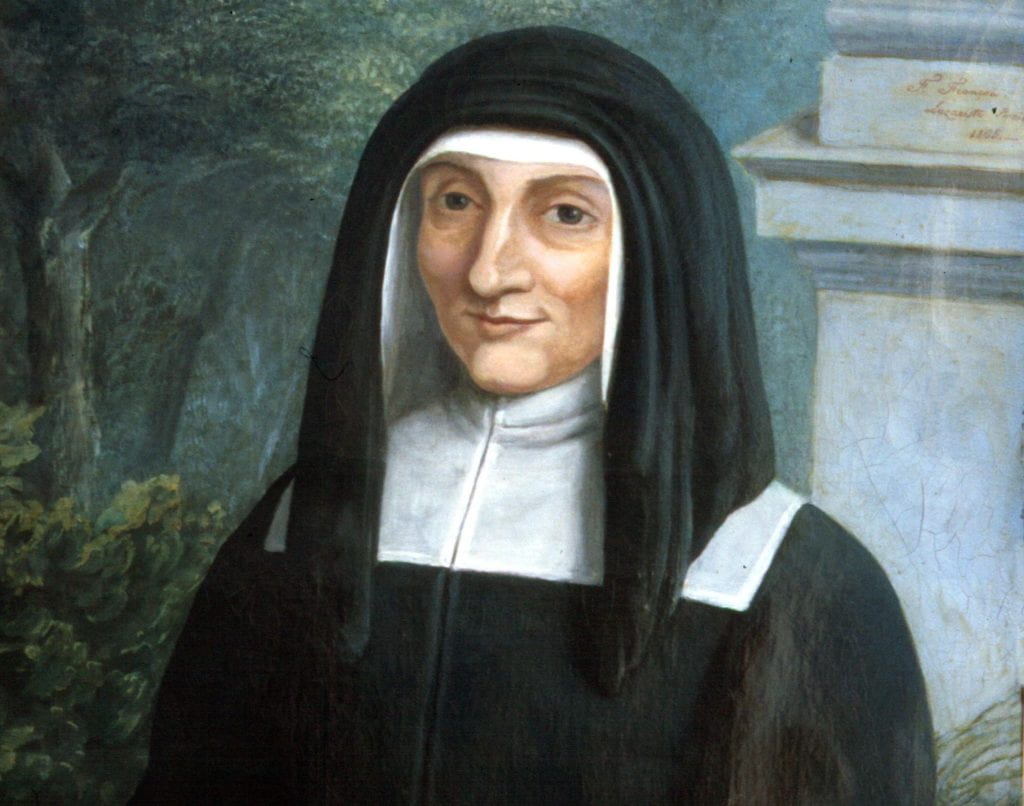
With this reflection, we continue our celebration of Louise Week 2023, highlighting Saint Louise de Marillac’s example of transformative leadership and compassionate care for the marginalized.
According to the World Health Organization, 1.3 billion people around the world live with disabilities.[1] Disabled people are much more likely than nondisabled people to live in poverty and to be excluded from societies that do not accommodate their needs. As part of the Vincentian Family, a community dedicated to serving those in need, DePaul University has a special commitment to those who are excluded. Inspired by our recent celebration of “Louise Week,” it is therefore fitting to examine Louise de Marillac’s engagement with disabled people.
Louise de Marillac had a deep relationship with disability. Her son, Michel, was born prematurely[2] and experienced developmental delays and learning challenges.[3] A single parent after the death of her husband, Louise herself experienced intense anxiety over her son that may have been worsened because he was a nontypical child. In fact, she often wrote to Vincent de Paul about this, seeking his advice and support.[4] She herself also had health issues, experiencing frequent migraines and chronic bronchitis.[5] Like many people who are chronically ill, she had to change life plans because of her illness: her health prevented her from entering the Capuchins, which had been a dream of hers as a teenager.[6] Louise knew what it was like to have her daily life curtailed by illness or treatment for illness. Several of her letters contain notes about this: “I took some medication this morning which limits my activity.”[7] She also experienced mental health issues. For instance, she suffered depression so intensely that, as she wrote, “the force of my emotions sometimes resulted in physical pain.”[8]
Louise’s experiences enabled her to better empathize with what members of her community were going through. As she wrote to one Daughter of Charity, “I share in the suffering that I know you are enduring because of your attacks of sadness and depression. … I wish you could share them with me, my very dear Sister, along with the thoughts they have evoked in you. I will try to be of some help to you in this matter having, perhaps, experienced the same difficulties myself.”[9] Many of her letters are filled with remedies for sisters and other colleagues who were sick, and she also cautioned against overexertion for those who were trying to carry out their duties even when they were ill: “Keep Sister Françoise until this evening, but do not let her carry the soup pot because she is not feeling well.”[10] Louise had a very holistic approach to the health of those under her that we would do well to emulate today. She recognized that it would be wrong for a community such as hers, devoted to healthcare and the service of the poor, not to treat its members with the same compassion and concern.
But Louise went beyond empathy and made strides toward inclusion. Although people with preexisting conditions were normally barred from joining the Daughters of Charity, Louise recognized that sick and disabled people could contribute to her community’s work. In the first surviving letter we have from her to Vincent, she speaks of “the good blind girl from Vertus” who was a Lady of Charity—a member of a group that worked with the Daughters.[11]
One of the most trusted leaders within the Daughters of Charity was Élisabeth Martin, who, among other things, oversaw the hospital communities in Angers and Nantes and supervised the new sisters at the motherhouse.[12] The editors of Spiritual Writings tell us that Martin was chronically ill.[13] Improving Martin’s health was a frequent subject of letters, but Louise apparently never considered relieving Martin of her responsibilities. On more than one occasion, Louise told Martin that she was not a burden and encouraged her to make what we today would term requests for accommodations. Consider this letter from Louise to Martin: “State your needs very simply and do not be upset that your illness makes you useless. You are the only one who thinks so.”[14] Louise always wanted a true picture of Martin’s physical and mental state, writing “speak to me openly of your suffering. I will read and understand everything.”[15]
This evidence clearly shows that, although it wasn’t perfect, a tradition of receptiveness and inclusion toward disabled people started with Louise. It’s important to understand the conditions of disabled lives. Disabled people should be able to state the exact nature of their abilities without fear and to request the modifications that they need to thrive. Only then can we build a society that truly serves everyone. We at DePaul should ask ourselves how we can continue Louise’s work toward inclusion.
Reflection Questions:
How can you work toward creating a more inclusive and supportive community for people with disabilities in your life and work at DePaul?
How does the example of Louise de Marillac inspire you to build and sustain a commitment to community?
Reflection by: Miranda Lukatch, Editor, Vincentian Studies Institute
Join us this week for more Louise Week events!
[2] Kieran Kneaves, D.C., “A Woman Named Louise: 1591–1633,” Vincentian Heritage Journal 12:2 (1991): 124. Available online at https://via.library.depaul.edu/vhj/vol12/iss2/3/.
[3] Élisabeth Charpy, Louise de Marillac: Come Winds or High Waters (Chicago: Vincentian Studies Institute, 2018), 14. Available online at https://via.library.depaul.edu/vincentian_ebooks/43/.
[4] Charpy, Louise de Marillac, 25.
[6] Charpy, Louise de Marillac, 10.
[7] Letter 20, “To Monsieur L’Abbé de Vaux at Angers,” May 6, 1640, Spiritual Writings, 28. Hereinafter referred to as SW. Available online at https://via.library.depaul.edu/ldm/.
[8] Document A.13, “An Interior Trial,” (c. 1621), SW, 691–92.
[9] Letter 102, “To Sister Claude (Brigide), the First,” (c. June 1642), SW, 74.
[10] Letter 127, “To My Very Dear Sister Barbe Angiboust,” (c. 1642), SW, 83.
[11] Letter 1, “To Monsieur Vincent,” June 5, 1627, SW, 6, n. 1.
[12] SW, 30–31, n. 3.
[13] SW, 39, n. 1.
[14] Letter 58B, “To Sister Élisabeth Martin,” August 7, (1641), SW, 56.
[15] Letter 23, “To Sister Élisabeth Martin,” (1640), SW, 34.









